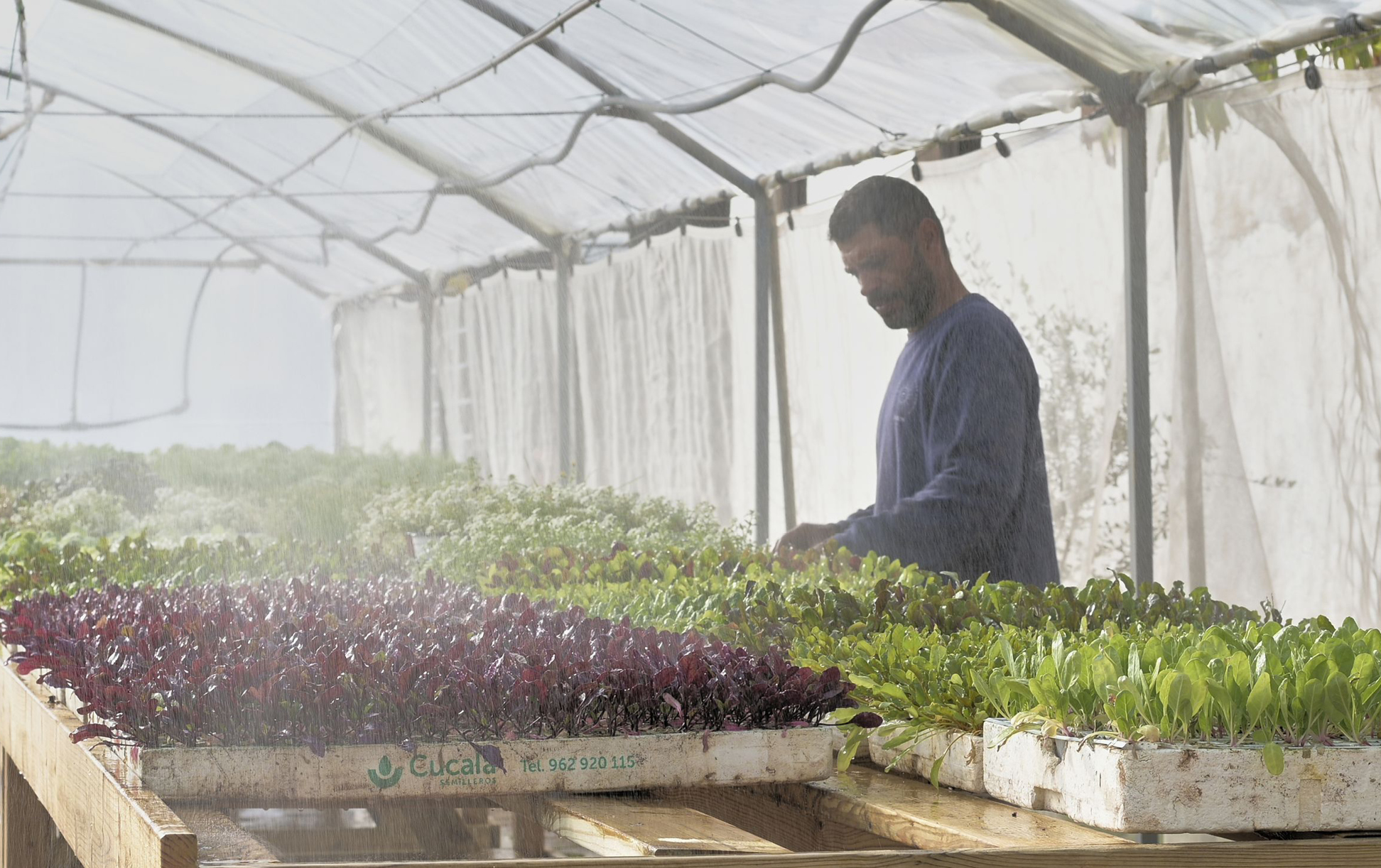Feeding billions of mouths on a warming planet isn’t easy. Already, rising temperatures, floods, droughts and wildfires are putting an immense strain on farmers all around the world. At the same time, harmful patterns in the way we currently grow, distribute and consume our food means that the industry is also one of the top contributors to the climate crisis. This makes the creation of a more sustainable food system one of the greatest challenges of our time — and one that desperately needs fresh visions based on values like community, creativity and biodiversity.
Located in the heart of Ibiza, Juntos Farm is a promising new project that aims to answer this call. The community space was launched last April by a small team of farmers and creatives led by Earthrise Studio co-founder Finn Harries and ‘naturepreneur’ Christian Jochnick. Over the past year, they’ve been working to transform an abandoned dairy farm into a cultural destination that supports the transition to regenerative agriculture. Today Juntos Farm produces everything from fruits and vegetables to compost and seedlings, using regenerative practices that include carbon sequestering, cover cropping and green manures, soil conservation, watershed protection and biodiversity enhancement.


Top: The abandoned dairy farm as it was. Bottom: A visualisation imagining how the space could be transformed. Image Credits: Finn Harries.
This summer the farm will open its doors to the public for a farm-to-table tasting event, with future plans to expand to educational workshops, cooking classes and farm tours. The hope is that eventually, Juntos Farm can be viewed as a case study for how other farming communities around the globe can meet both climate and food security challenges head on.
“Most people know Ibiza as a summer destination famous for its nightclubs. But the reason why I was interested in it, is because over the last 20 years, this little island — like many places — has seen a really rapid decline in local food production,” explained Finn in a recent video. “Today, only 4% of the food that’s consumed is grown on the island itself. And this is part of a broader trend: collectively, we are becoming increasingly disconnected from where and how we grow our food.”
This sense of disconnection has a lot to do with how industrial and centralised agriculture has become, but also with the kinds of habits and values that define consumer culture today. Bridging this gap — and imagining different systems around how we can nourish ourselves while giving back to the land — is ultimately what regenerative farming is all about. According to Finn, it’s also the reason why Juntos Farm puts as much stock into storytelling and community-building as it does into producing food. “Juntos means ‘Together’ in Spanish and that’s what the entire project is about: coming together under a common goal to create a healthier, more resilient food system that supports people and the planet.”
Learn more about Juntos Farm through their website or follow the project on Instagram for the latest updates.



The team behind Juntos Farm at work, including farmers Alba and José. All images: Medsea Studio.
